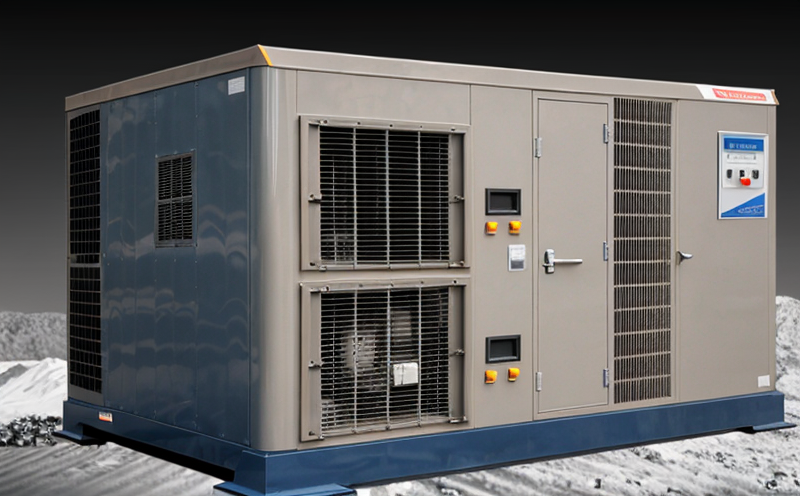JEDDEC JESD22-A139 Power Dissipation Thermal Reliability Testing
The JEDEC JESD22-A139 test is a critical procedure used to evaluate the thermal reliability of semiconductor devices under power dissipation conditions. This testing ensures that the electronic components can withstand high temperatures and stress without failure, thereby enhancing their robustness for various applications.
Thermal reliability is paramount in ensuring the longevity and performance consistency of semiconductors across different operating environments, especially those exposed to higher current densities or continuous power delivery. The JESD22-A139 standard provides a framework that allows engineers to assess how well devices handle increased power dissipation without degrading. By subjecting components to controlled thermal stress conditions, this test uncovers potential weaknesses that might otherwise go undetected under normal operating conditions.
The testing process involves exposing the semiconductor device to specified levels of power dissipation while maintaining a precise temperature control environment. This ensures accurate measurement and comparison against industry standards. The outcome provides critical insights into the thermal stability of the component, which is essential for ensuring reliability in high-stress environments such as automotive electronics, military applications, and industrial equipment.
The JESD22-A139 test is typically conducted using specialized chambers capable of precise temperature control and power delivery. These chambers are designed to simulate real-world conditions where the device may be subjected to extended periods of operation at elevated temperatures. The testing procedure involves monitoring key parameters like junction temperature, thermal resistance, and heat dissipation efficiency during the specified stress period.
Understanding the importance of this test is crucial for quality managers and R&D engineers who must ensure that new products meet stringent reliability requirements. Compliance officers also rely on such tests to validate that their components adhere to relevant international standards like JESD22-A139, ensuring adherence to regulatory frameworks and market expectations.
For procurement teams, this test is vital in selecting high-quality suppliers who consistently deliver reliable components. By incorporating JEDEC JESD22-A139 testing into the procurement process, organizations can mitigate risks associated with substandard materials or manufacturing defects that could lead to product failures down the line.
Eurolab Advantages
At Eurolab, we pride ourselves on offering comprehensive and cutting-edge services tailored specifically for your needs. Our state-of-the-art facilities equipped with the latest technology ensure accurate and reliable testing results. Here are some of the key advantages that come with choosing us:
- Accurate Results: Utilizing advanced equipment and methodologies, we provide precise measurements and analyses.
- Comprehensive Testing Capabilities: Our expertise spans across various sectors including semiconductor testing, ensuring thorough evaluation of your products.
- Expertise in Standards Compliance: We stay updated with the latest international standards like JESD22-A139 and ensure compliance during our tests.
- Efficient Turnaround Times: Our streamlined processes allow for quicker results without compromising on quality.
- Customized Solutions: Tailoring our services to meet your unique requirements, from basic testing to complex multi-parameter evaluations.
- Comprehensive Reporting: Offering detailed reports that not only provide test outcomes but also actionable insights for improvement.
- Trusted Name in the Industry: With years of experience and a proven track record, Eurolab is your go-to partner for reliability testing.
- Dedicated Support Team: Our knowledgeable staff is always available to assist with any inquiries or concerns throughout the testing process.
Why Choose This Test
- To ensure long-term performance and reliability of semiconductor devices.
- To identify potential weaknesses in design or manufacturing processes early on.
- To comply with industry standards such as JESD22-A139, ensuring regulatory compliance.
- To reduce the risk of product failures in high-stress environments.
- To enhance brand reputation by delivering high-quality products.
- To gain a competitive edge by meeting or exceeding market expectations.
- To save costs associated with recalls and warranty claims due to substandard products.
Use Cases and Application Examples
| Use Case/Application | Description |
|---|---|
| Automotive Electronics | Ensuring the reliability of semiconductors in vehicles exposed to extreme temperatures and high power demands. |
| Military Applications | Evaluating components for use in harsh environments with stringent thermal stress requirements. |
| Industrial Equipment | Testing semiconductors used in machinery that operates under continuous power delivery and high temperatures. |
| Critical Infrastructure | Verifying the reliability of semiconductor components in systems critical to public safety and security. |
| Data Centers | Evaluating the thermal stability of semiconductors used in power-hungry servers and storage devices. |
| Consumer Electronics | Assuring the robustness of semiconductors in products exposed to varying environmental conditions. |
| Medical Devices | Ensuring reliability for medical equipment used in critical care settings where thermal stability is crucial. |





